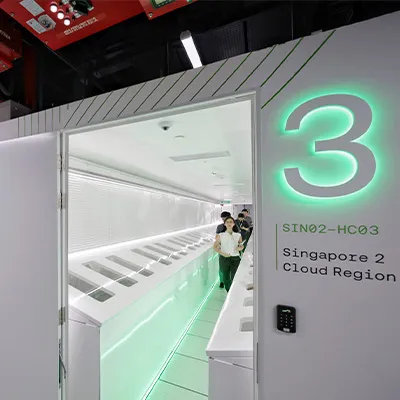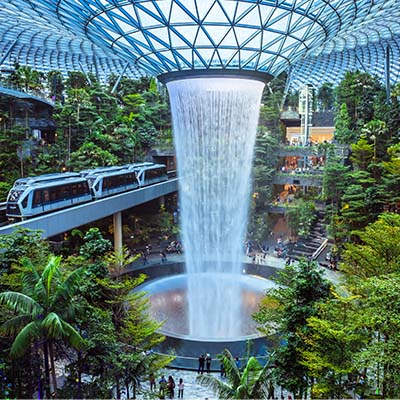Singapore is leaving no stone unturned in its bid to shrink its carbon footprint, which includes looking into the possibility of deploying nuclear energy here, as well as importing clean energy from as far as Australia, the Republic's chief climate negotiator Joseph Teo said.
"We are looking at all options," Mr Teo said on Tuesday evening (April 5) during a panel discussion on climate change that was organised by the National University of Singapore's (NUS) Tembusu College.
The discussion was moderated by Ambassador-at-Large Tommy Koh, and also featured NUS conservation scientist Koh Lian Pin, who heads the Centre for Nature-based Climate Solutions at the university, and Ms Wong Su-Yen, chairman of the Singapore Institute of Directors.
"One of the projects that's being worked on now is building a pipeline from Australia to Singapore, so we can import green electricity from Australia," Mr Teo said.
"Just to give you a sense that we are leaving no stone unturned, this is a huge project. Lots of challenges - the project is transboundary, and there is the consideration of whether importing energy would overwhelm our own national grid. Should we also rely so much on one source of energy? So these are considerations that agencies are looking at," he added.
Australian firm Sun Cable's A$30 billion (S$30.9 billion) Australia-Asia PowerLink (AAPowerLink) project aims to connect Singapore via a 4,200km subsea cable to a solar farm in Darwin.
The project is expected to begin construction from late 2023, with the first supply of electricity to Darwin expected in 2026 and Singapore in 2027. Full supply capacity is expected to be reached by the end of 2028.
The main causes of climate change are the burning of fossil fuels for energy and deforestation.
Singapore now relies mainly on natural gas, a kind of fossil fuel, for its energy needs.
But as the country's long-term goal is to have the amount of planet-warming emissions it releases dwindle to net zero by or around the middle of the century, Singapore is now looking at ways to decarbonise its power sector
Asked about Singapore's stance on nuclear energy as a source of energy to replace fossil fuels, Mr Teo said that a recent report commissioned by the Energy Market Authority (EMA) had identified nuclear as a potential source of energy for the country by 2050.
"As a small city state, our primary concern is that of safety," he said, adding that the country will have to be assured of the safety of nuclear technology before it is deployed here. "We have done our feasibility studies, (the safety assurance) is not there yet, but we are not closing out the option," he said.







